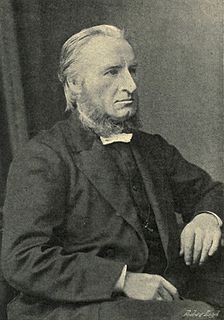A Quote by Sue Thoele
Grace is goodness and respect given freely and unconditionally. A sense of divine love and protection bestowed on us when we need strength and renewal. Grace helps us know we are not alone and believe we are cared for and cherished. Grace is a drink of clear, clean water in the desert.
Related Quotes
[Grace] is given not to make us something other than ourselves but to make us radically ourselves. Grace is given not to implant in us a foreign wisdom but to make us alive to the wisdom that was born with us in our mother?s womb. Grace is given not to lead us into another identity but to reconnect us to the beauty of our deepest identity. And grace is given not that we might find some exterior source of strength but that we might be established again in the deep inner security of our being and in learning to lose ourselves in love for one another to truly find ourselves.
It is grace at the beginning, and grace at the end. So that when you and I come to lie upon our death beds, the one thing that should comfort and help and strengthen us there is the thing that helped us in the beginning. Not what we have been, not what we have done, but the Grace of God in Jesus Christ our Lord. The Christian life starts with grace, it must continue with grace, it ends with grace. Grace wondrous grace. By the grace of God I am what I am. Yet not I, but the Grace of God which was with me.
This is the amazing story of God’s grace. God saves us by His grace and transforms us more and more into the likeness of His Son by His grace. In all our trials and afflictions, He sustains and strengthens us by His grace. He calls us by grace to perform our own unique function within the Body of Christ. Then, again by grace, He gives to each of us the spiritual gifts necessary to fulfill our calling. As we serve Him, He makes that service acceptable to Himself by grace, and then rewards us a hundredfold by grace.
If we let ourselves believe that man began with divine grace, that he forfeited this by sin, and that he can be redeemed only by divine grace through the crucified Christ, then we shall find peace of mind never granted to philosophers. He who cannot believe is cursed, for he reveals by his unbelief that God has not chosen to give him grace.
This is our Lord’s will, that our prayer and our trust be both alike large. For if we trust not as much as we pray, we do not full worship to our Lord in our prayer, and also we tarry and pain our self. The cause is, as I believe, that we know not truly that our Lord is Ground on whom our prayer springeth; and also that we know not that it is given us by the grace of His love. For if we knew this, it would make us to trust to have, of our Lord’s gift, all that we desire. For I am sure that no man asketh mercy and grace with true meaning, but if mercy and grace be first given to him.
When the New Testament speaks about the fullness of grace which we find in Christ, it does not mean only forgiveness, pardon and justification. Christ has done much more for us. He died for us, but he also lived for us. Now he has sent his own Spirit to us so that we might draw on his strength. He grew in grace, and when we draw on his power we shall likewise grow in grace.
Augustine said that we were all born into the world of "common grace" [i.e., available to all]. Before one is baptized, or even if one never is, such grace meets one in God's creation. There is grace in the pear tree that blooms and blushes. There is common grace in the sea (that massive cleanliness which we are proceeding to corrupt), in the fact that there was, before we laid hands on it, clean air. Our task is to appreciate that grace.

































